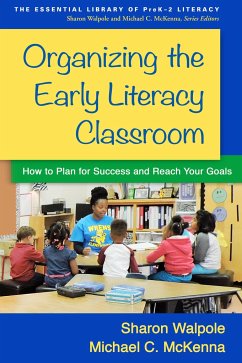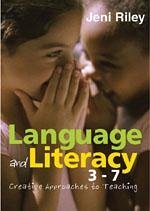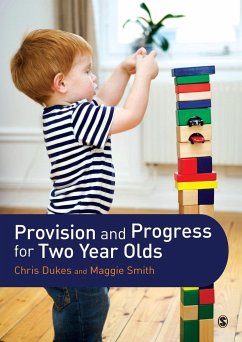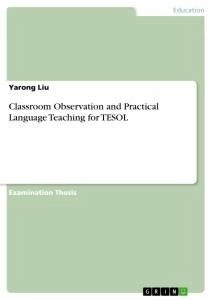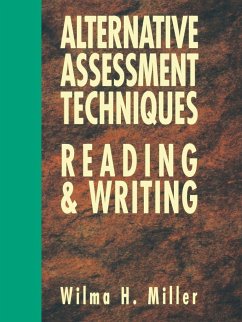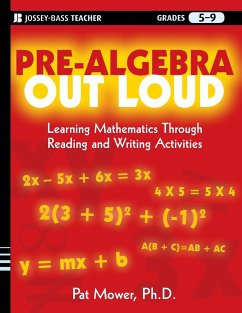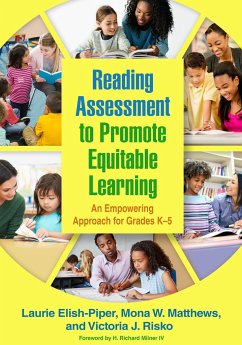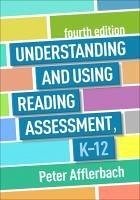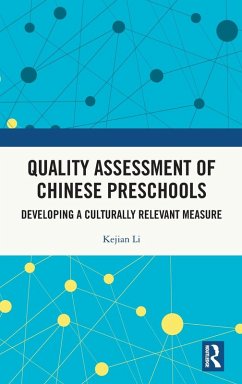Nicht lieferbar
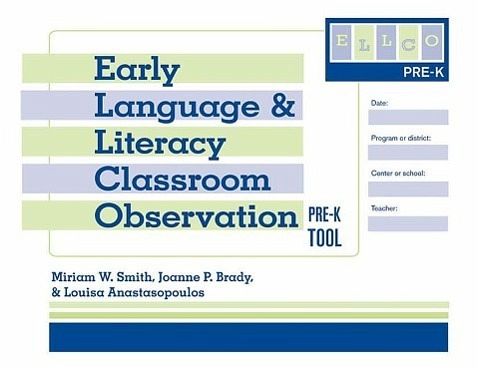
Early Language and Literacy Classroom Observation Tool, Pre-K (Ellco Pre-K)
Versandkostenfrei!
Nicht lieferbar




ELLCO was developed to measure classroom environments and their effects on early literacy and language development in pre-K through third grade. This work provides information on how to use and interpret the results, including guidelines for conducting classroom observations, limiting bias in scoring, scoring guidance, and providing feedback.
Dr. Smith has always enjoyed working directly with young children and teachers of young children. Beginning in 1987, she collected and analyzed data for the longitudinal Home-School Study of Language and Literacy Development. Her work on that project brought her into many classrooms as an observer and researcher and propelled her interest in classroom environments and practices that promote children's early language and literacy development. Later work conducted for the Center for Children & Families at EDC cemented her commitment to working directly with teachers, supervisors, and education leaders to promote conditions that positively affect children's learning. Currently a consultant to EDC, Dr. Smith continues to engage in research, writing, and professional development with teachers of young children. An active volunteer in local schools and child care programs, she most enjoys spending time in the "living lab" of daily life with her three children. Ms. Brady is recognized nationwide for her contributions to the field of early childhood education. She provides leadership to a range of complex projects that focus on research, assessment, technical assistance, and professional development that translates research and recommended practice into useful programs and products for practitioners and policy makers. Her groundbreaking work with the National Board for Professional Teaching Standards has led to a performance-based assessment to certify accomplished early childhood teachers. In recent years, Ms. Brady has concentrated her efforts on the design of professional development approaches that build teachersâ (TM) knowledge and skill in content areas, especially language and literacy. Ms. Brady and her colleagues are examining the impact of literacy-related professional development on teachersâ (TM) practices and childrenâ (TM)s learning. Ms. Brady presents her work at major conferences and seminars in the United States and abroad and has contributed to numerous publications, including Critical Issues in Early Childhood Professional Development (Zaslow & Martinez-Beck, Paul H. Brookes Publishing Co., 2006). Louisa Anastasopoulos, M.P.P., has extensive experience conducting classroom observations, child assessments, and interviews with teachers and parents. Her work has dealt with examinations of classroom quality as well as with early language and literacy. She has been instrumental in the design of teacher and parent interview protocols and has spent a great deal of time interacting with preschool teachers and staff. Her bilingual expertise has contributed to her ability to work with a wide variety of teachers and parents. Ms. Anastasopoulos holds a master of public policy, with a focus on education policy, from the Georgetown Public Policy Institute.
Produktdetails
- Verlag: Brookes Publishing Company
- Seitenzahl: 44
- Erscheinungstermin: 29. Februar 2008
- Englisch
- Abmessung: 213mm x 282mm x 15mm
- Gewicht: 703g
- ISBN-13: 9781557669476
- ISBN-10: 1557669473
- Artikelnr.: 25540298
Herstellerkennzeichnung
Libri GmbH
Europaallee 1
36244 Bad Hersfeld
gpsr@libri.de
Für dieses Produkt wurde noch keine Bewertung abgegeben. Wir würden uns sehr freuen, wenn du die erste Bewertung schreibst!
Eine Bewertung schreiben
Eine Bewertung schreiben
Andere Kunden interessierten sich für



